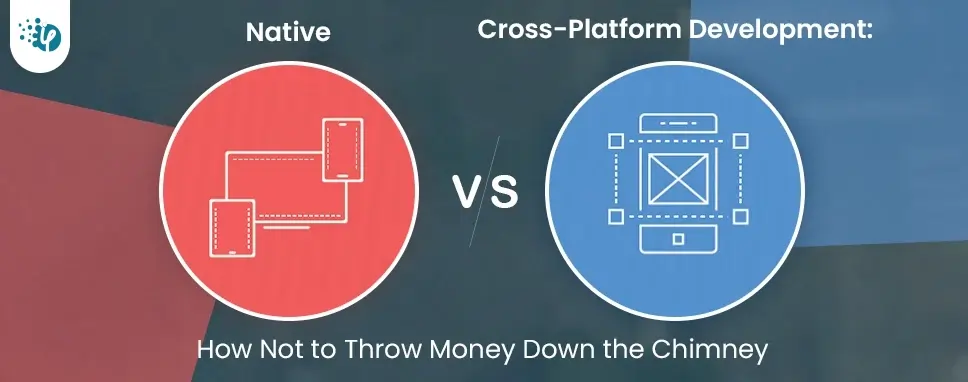Ethical Issues in Healthcare: Key Considerations For AI
Let’s keep it simple. In healthcare, trust, safety, and human dignity come first, no matter what solution you build. The same applies to AI. Today, it is everywhere, from clinics...
Listening is fun too.
Straighten your back and cherish with coffee - PLAY !

There are two main options if you are looking to build a mobile app. The first one is native development – when a code is written using several programming languages, written separately for Android and iOS platforms. While the second one is cross-platform – when the code is written once and is allowed to run on several platforms. Already native development has a more persistent toolset, while new solutions are still appearing in the solution.
Native app development has to do with building a single app solely for one platform. The app is developed with tools and programming languages specific to the single platform. For instance, you can use Kotlin and JAVA for developing a native android application.
With a native app, you are surely getting an exceptional user experience because it performs very highly. In addition, the UX is enhanced because the people are tailored towards the platform UX. However, the concerning thing for startups is that it costs so much to develop native apps because they run the platform development concurrently.
These are some of the advantages of Native App Development:
You are able to access all the tools and API that the platform you are working on provides. So, technically, there is no limit to how programmers can work with a new app.
It is easier to publish a native app, and it usually ranks higher on the app store because of the better speed and performance that it delivers.
These apps developed for the native environment are usually more scalable because of the vast array of tools and the flexibility in managing resources.
The underlying resources and the code interacts directly, and this leads to high performance. However, it is also true that native apps have a better UX generally, and this is synonymous with this platform.
Wider functionality
Improved store support
Improved store support
Great UX and high performance
According to RushEssay, these are some of the disadvantages of Native App Developments:
It requires a lot to build native apps, especially when launching for both Android and iOS. This means that you have to deploy two teams simultaneously to work on the different platforms.
It requires a lot of time to develop native apps because the work is done for a platform that is impossible for another to duplicate. So you may need to get separate teams to work on the different versions simultaneously.
Costly
Time-consuming
The development of cross-platform relates to the process of developing an app to work on multiple platforms. Doing this requires tools such as Flutter, Xamarin, and React Native, where it is possible to deploy the apps created on iOS and Android.
Although cross-platform development requires lower cost and saves more time, you may not get as much quality as the native platform development. Tailoring an app that works optimally from various platforms is very difficult. The app will feel the need to add an extra abstraction layer, leading to lower performance.
Most startups will prefer the reduction in cost and time that cross-platform development offers. However, you must never forget that it may be impossible to customize your app more than the framework allows.
These are some of the advantages of cross-platform apps
Unlike the native platform in which you may need to get two teams, in this case, you only need one theme.
Not only is cross-platform cheaper than the native platform, but the development is also relatively faster. You only need a cycle of development to develop an app capable of running on several platforms.
The creation of this app is done with one cross-platform development too. So it means that you do not need to create more than a single code base.
Relatively cheaper
Faster development
Single codebase
These are some of the disadvantages of cross-platform app development:
The app is relatively slower compared to the native app. This is because of the need for an additional rendering process and abstraction layer compared to the native counterpart.
The cross-platform app is limited in several ways, and many developers may have difficulties accessing some of the common smartphone functionalities such as geolocation, camera, microphone, etc.
Cross-platform apps can leverage the native UX components, so they will not deliver a similar kind of UX experience that has become accustomed to this platform.
Slower app
Limited functionality
Limited UX
Cross-platform development is the ideal choice for an app about displaying information gotten from across the network. However, if the app requires accessing low-level API such as Bluetooth, it does not remain unemployed forever.
Native app development results in high-performing apps, but they are costly to build. Since you are not working with a limited budget, the better choice is cross-platform development. This will allow you to save as much as 30-40% since it only creates a single codebase for this app working on iOS and Android.
There are projects in which you are looking to get the MVP app running as quickly as possible. In this case, then you have to consider using cross-platform development. You should not always have to build two different versions of the same app. One cycle of growth is all you need for the app to be released for iOS and Android.
If you want to ensure an incredible experience and visuals, you have to look towards native developments. When developers work in native environments, they often have access to the UI/UX components of the platform. If you choose the cross-platform, you’ll not get the best out of the app’s UI/UX elements
Application complexity
Cost
Development time
UI/UX
There are different merits and demerits to native development and cross-platform development, and your choice will depend on several factors, such as the developer’s skills and the project requirements. For example, if you want good performance and quality UX, go for a native app, but if you are going to build quickly and easily, you should choose cross-platform development. Although they are more costly to build, they offer better visuals and lower defect rates that put you at ease. These apps are quick and easy to build.

Let’s keep it simple. In healthcare, trust, safety, and human dignity come first, no matter what solution you build. The same applies to AI. Today, it is everywhere, from clinics...

Let's keep it real. The whole point of building autonomous Agents is to cut manual work and keep focus on business. Approvals that used to take days can happen in hours because...

AI and Automation aren’t just options anymore. They are a necessity to keep yourself focused on what matters the most. Whether it is Zapier or Power Automate, ChatGPT or Copilot, every...